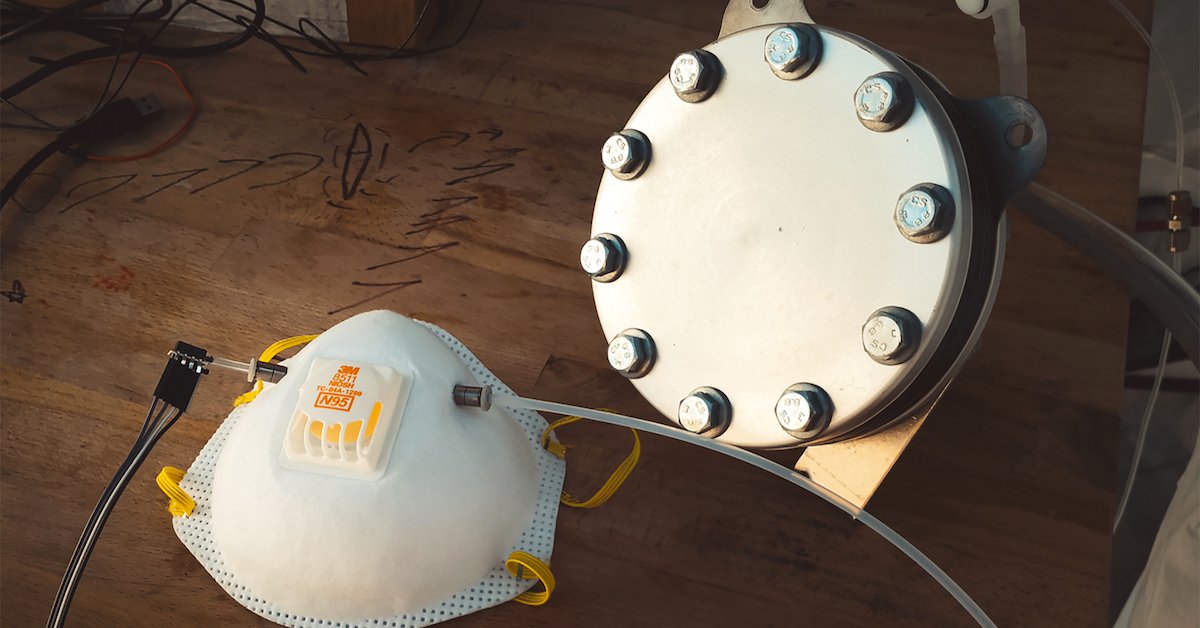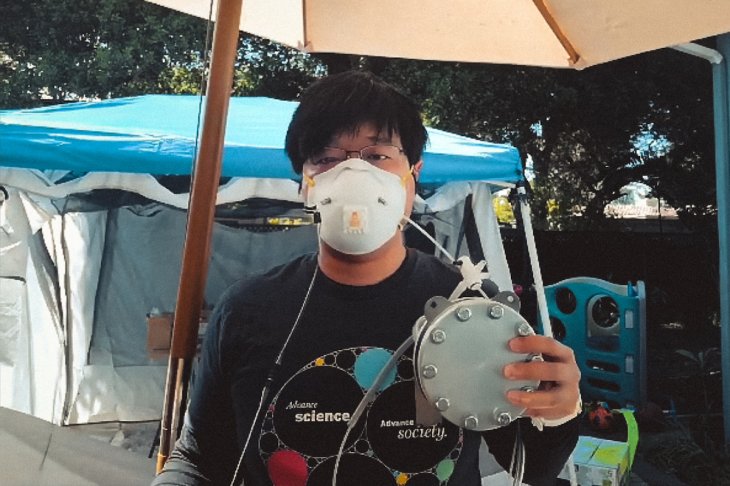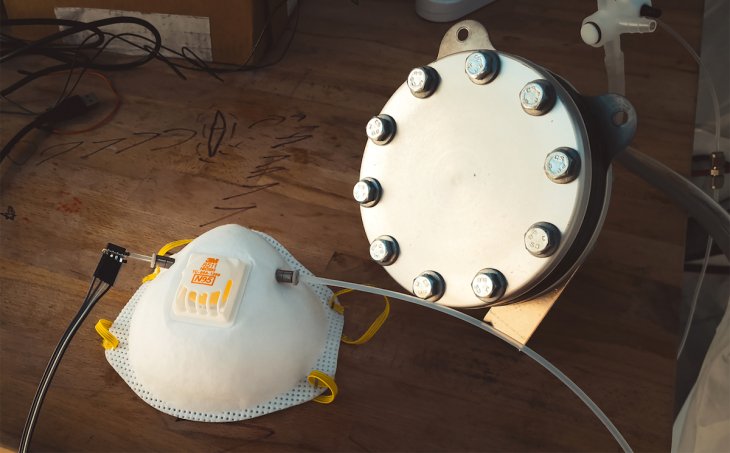Stanford Engineers Modify The N95 Mask To Be More Breathable
Harin - Apr 17, 2020

Stanford University engineers may have come up with a way to improve the N95 mask, which is the best mask on the market.
- This Man's Super-Antibody Can Be Diluted 10,000 Times But Still Works Against COVID-19
- These Indian Cities Are Under Lockdown Again In 2021
- India To Review Covishield Vaccine After Report Of Blood Clots Following Vaccination
Amid the COVID-19 outbreak, face masks have become a hot topic because there aren’t enough to give to healthcare staff. While many companies have been trying to make their own face masks, others have resorted to FDA-approved methods for face masks decontamination to reuse them.
Now, Stanford University engineers may have come up with a way to improve the N95 mask, which is the best mask on the market. With their version, the oxygen is extracted and concentrated from the air, thus significantly improves the experience of the wearer.

John Xu and Friedrich “Fritz” Prinz decided to take a break from their project on developing next-generation vehicles’ fuel cells. The pair shifted to how to make use of electrochemical processes.
So, the team has developed a new kind of face mask than can extract as well as concentraing oxygen from the air. By doing this, the wearer won’t go through oxygen deficiency’s adverse effects. The mask also helps prevent the spread of the coronavirus.
Xu explained that, the mask filters the are that come in and out of the wearer’s lúng. The virus together with other particles are trapped in the mesh. N95 masks have become a popular product since the COVID-19 pandemic started break out. They can filter out 95% of small particulate matter, including the virus.

However, wearing the masks for too long, which is something most healthcare professionals are going through at the moment, makes it difficult to breathe. It is estimated that the oxygen intake is reduced from 5 to 20% with the N95 mask. That is a significant number, even for a healthy normal person. Oxygen deficiency can lead to dizziness and lightheadedness. And the wearing time is further prolonged, it can even damage the lungs.
So what the team did was focusing on enhancing the oxygen filtering through the mask. They wanted to make a portable device using these electrochemical processes to improve the oxygen.

And they have succeeded. According to Xu, it’s a small box that can be worn at the waist. There is a tube connecting to the face mask. The pair is trying to make it even more portable, to be better suited for the experience of the user.
>>> How To Decontaminate And Reuse Your N95 Face Mask
Featured Stories

Features - Jan 29, 2026
Permanently Deleting Your Instagram Account: A Complete Step-by-Step Tutorial

Features - Jul 01, 2025
What Are The Fastest Passenger Vehicles Ever Created?

Features - Jun 25, 2025
Japan Hydrogen Breakthrough: Scientists Crack the Clean Energy Code with...

ICT News - Jun 25, 2025
AI Intimidation Tactics: CEOs Turn Flawed Technology Into Employee Fear Machine

Review - Jun 25, 2025
Windows 11 Problems: Is Microsoft's "Best" OS Actually Getting Worse?

Features - Jun 22, 2025
Telegram Founder Pavel Durov Plans to Split $14 Billion Fortune Among 106 Children

ICT News - Jun 22, 2025
Neuralink Telepathy Chip Enables Quadriplegic Rob Greiner to Control Games with...

Features - Jun 21, 2025
This Over $100 Bottle Has Nothing But Fresh Air Inside

Features - Jun 18, 2025
Best Mobile VPN Apps for Gaming 2025: Complete Guide

Features - Jun 18, 2025
A Math Formula Tells Us How Long Everything Will Live
Read more

ICT News- Feb 19, 2026
Escalating Costs for NVIDIA RTX 50 Series GPUs: RTX 5090 Tops $5,000, RTX 5060 Ti Closes in on RTX 5070 Pricing
As the RTX 50 series continues to push boundaries in gaming and AI, these price trends raise questions about accessibility for average gamers.

ICT News- Feb 18, 2026
Google's Project Toscana: Elevating Pixel Face Unlock to Rival Apple's Face ID
As the smartphone landscape evolves, Google's push toward superior face unlock technology underscores its ambition to close the gap with Apple in user security and convenience.

ICT News- Feb 20, 2026
Tech Leaders Question AI Agents' Value: Human Labor Remains More Affordable
In a recent episode of the All-In podcast, prominent tech investors and entrepreneurs expressed skepticism about the immediate practicality of deploying AI agents in business operations.
Comments
Sort by Newest | Popular